It had been a long day for Boston Celtics guard Isaiah Thomas. Then again, it had been a very long year, the latest in a career he hoped would continue to grow longer.
Earlier in the evening on August 30, 2017, Thomas had been traded from the Boston Celtics, the team he had lived and died for over the course of his three seasons there, and the franchise with whom he would always be remembered. At 5’9”, by far the shortest player in the National Basketball Association, Thomas had dedicated a lifetime to carving out his place in the league, determined to make up for the inherent disadvantage his stature had cursed him with.
In the 2017 season it appeared that dedication had paid off. Thomas averaged nearly 30 points per game, was selected to the All-NBA second team, and led the Celtics to the Eastern Conference Finals. During the first round of that postseason, Thomas learned that his sister, Chyna Thomas, had been killed in a car accident just outside of his hometown in Tacoma, Washington. Despite his immense heartache, Thomas refused to forego the opportunity he had sought so tirelessly to create. He continued to play, and eventually his personal struggle and on-court starpower collided to produce a 53-point performance in Game 2 of the Eastern Conference semifinals, a game he dedicated to his sister.
But all the hours and effort Thomas had poured into the game of basketball were not part of a rigid transaction. There was no guarantee, no threshold of commitment he could reach in order to ensure success. He had to sacrifice himself, endure unimaginable pain, all the while knowing it may not be enough.
The Celtics were defeated by the Cleveland Cavaliers four games to one in the Eastern Conference Finals, with Thomas sidelined for the last three games of the series with a hip injury. Several months later, during the offseason, when Kyrie Irving, one of the marquee players from that Cavaliers team became available via trade, the Celtics did not hesitate to take advantage of what they believed was a chance to advance their station. Thomas was the cost.
Now the diminutive dynamo was left with nothing but questions. How could Boston do this to him, after everything he had done? If he had performed better, would this still be happening? Would he ever recapture the magic he found with the Celtics?
None had clear answers. But one definitive conclusion could be drawn.
Hard work was not enough.

The value of a ravenous work ethic is foundationally ingrained in our society. Functioning in tandem with the perception of the American Dream, the idea that any worldly obstacle can be overcome with elbow grease and a can-do attitude is as frequently proliferated as the importance of eating your vegetables.
But this oft-spoken guarantee comes with a silent caveat that is far less susceptible to being used as material for an inspirational poster: that it is not a guarantee at all. No matter how relentlessly one works to stack the odds of life in their favor, success is still a bet, not a certainty. If there was a specific level, a threshold of work one could reach in order to ensure the achievement of their goals, accomplishment would be far more commonplace. But such a minimum does not exist. Instead, dedication carries a tacitly understood risk, the daunting threat of striking out that prevents so many from batting: that hard work is not completely secure. That you can put everything you have into the pursuit of the thing you desire, and still fall short.
With Thomas, the goalposts of success were ever-shifting. First it was to play Division I basketball. Then it was to make the NBA. Then it was to become the type of player that the league would respect, one that opposing players and coaches feared on their schedule. Standing nearly a foot shorter than the NBA’s average height of 6’7”, few in Thomas’s shoes (or his shoe size) ever achieve such lofty goals. Thomas nailed all three, and along the way, never wavered in his confidence that his dream would become a reality.
“It was important to me to believe. Because if I don’t believe, how can I expect them to believe?” Thomas said.
If judged by any sort of typical standard, Thomas did not fall short of his goals. Hard work was more than enough– it delivered him a prosperous career in the NBA, the pinnacle of basketball glory. But on that fateful day when the Celtics discarded the fruits of Thomas’s labor, it is difficult to imagine Thomas felt his work had paid off. Since being traded from Boston, Thomas has struggled to regain the dominant form that produced his spectacular 2017 campaign. He did not spend long in Cleveland, only half a season before being traded again, and has since spent fleeting time on four different teams in three years. Now, Thomas is a free agent. He remains adamant that he is capable of playing at an NBA level, but after consistently poor performance, front offices do not believe him.
“These n**** gave up on me,” Thomas said tearfully after scoring 81 points in a Pro-Am game in Seattle earlier this year. “They gave up on me.”
The malasse of time eventually slows even the greatest of athletes. Thomas’s career was destined to come to an end someday. But the unceremonious shade that his exit has been painted with is an unfortunate development that Thomas does not deserve. The dedication reaching this point required has earned him a more graceful departure, yet one has not presented itself.
That difference between what Thomas warrants and what he receives is, again, the fundamental struggle of effort. No amount of work can guarantee an outcome. For every Isaiah Thomas, there are millions of passionate basketball players who put in comparable levels of commitment but never reach the NBA, and certainly never score 53 points in a playoff game. Like Thomas, they poured countless hours into a pursuit that did not provide their desired return on investment.
But both Thomas and his lesser-achieving counterparts were aware of the gamble they were making. Regardless of how much confidence they held in their capabilities, they all knew that reaching the heights they sought required plenty of help from factors outside of their control– genetics, avoiding injuries, and proper exposure among them. Those factors that make up the difference between the outcome one’s work merits and the outcome that occurs are different for every individual and pursuit. But the lack of personal agency over them is what gives failure that occurs in spite of immense effort its sorrowful tint.
Isaiah Thomas did everything in his power to achieve his basketball dreams. He could not control his height, his body breaking down, or the betrayal from the organization for which he had sacrificed so much. Those games played outside Thomas’s grasp were what have ultimately planted him where he is now: waiting, hoping for another opportunity to have the ball in his hands– both literally and figuratively.
And yet, despite the adversity he has faced, I doubt Thomas would want to be cast as a tragic figure. While he would have loved to become an NBA champion, to remain with the Celtics throughout his career, to become the greatest his sport had ever seen, the status he achieved is nothing to sulk over.
There is no minimum amount of work Thomas could have put in to ensure those endings. If there had been, he would have surpassed it many times over. There was no way for him to know when he began down this path that he would achieve what he did, and no time to deliberate on whether it was a fair trade-off. He just worked, even with the looming and unkillable shadow of failure constantly lurking.
But in the process, Thomas became the best version of himself. That is a goal that was completely in his control, and one no one can ever take away or dispute. And in that success rests the gleaming light shining through the dark uncertainty of human effort. That even if the external objectives we set for ourselves are not set, by dedicating ourselves, we achieve internal goals we never even knew we set.


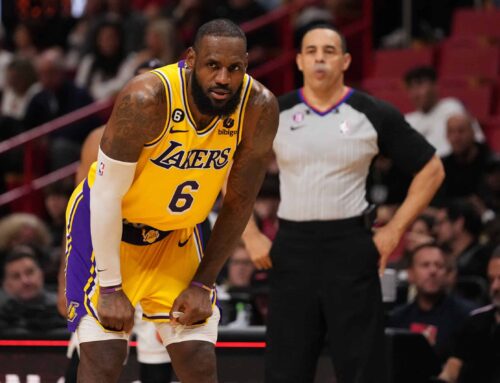
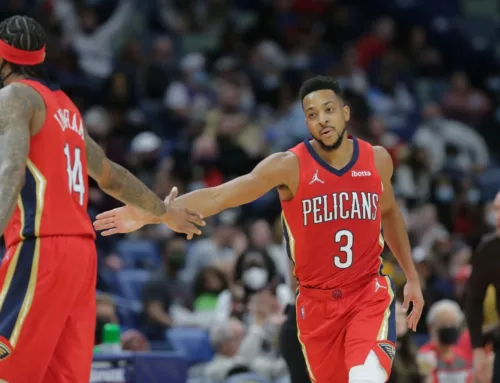
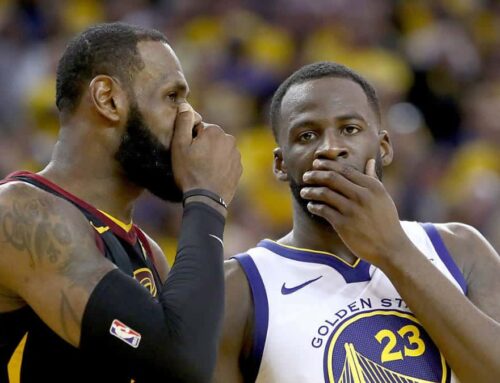
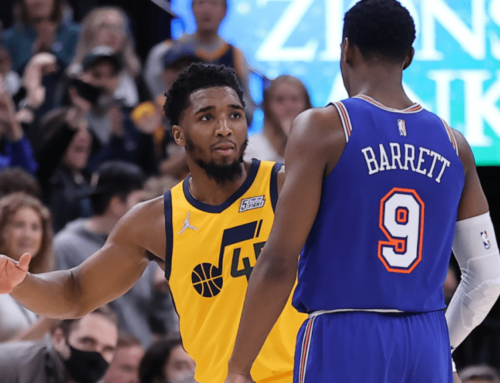
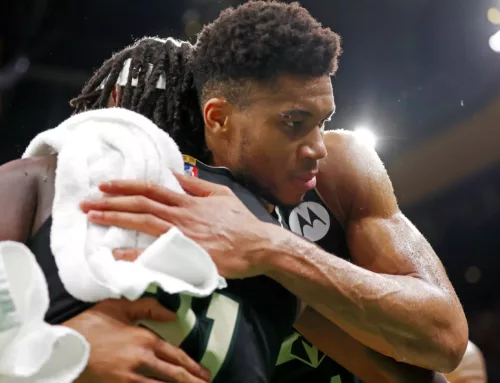
Leave A Comment